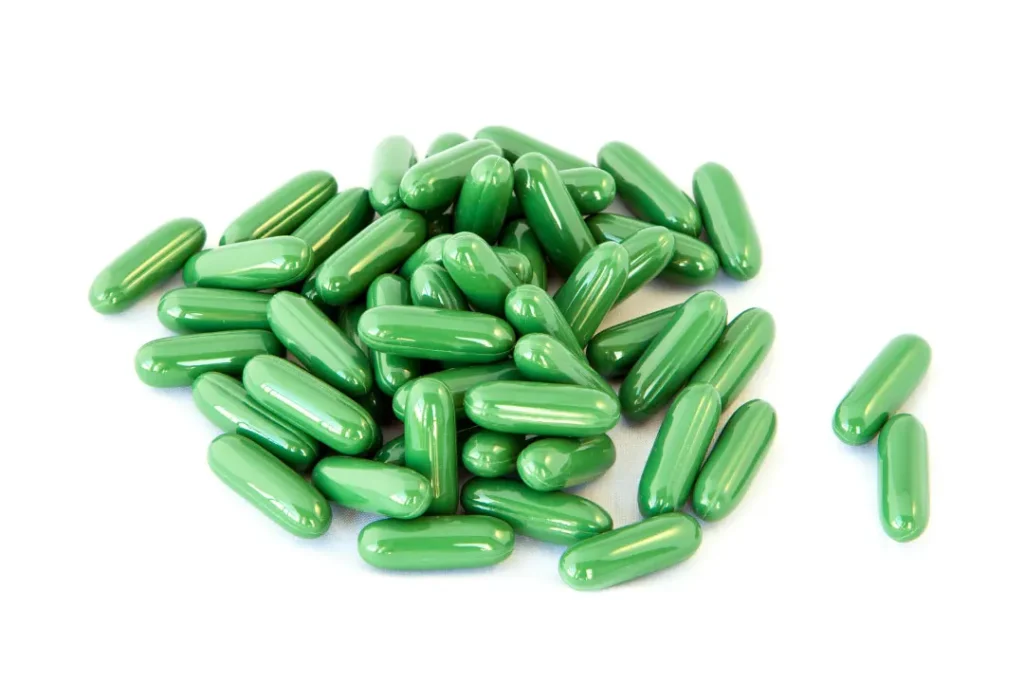A synbiotic is a combination of prebiotics and probiotics that may work together to improve gut health. Synbiotics may also improve immune function, reduce inflammation, promote weight loss, and even support mental health. We’ll compare Seed synbiotic reviews with myPEAK PeakBiotic reviews, to help you make a better-informed purchase decision.
It turns out that the gut is more than just a means to digest your food; it’s far more complex than previously thought. Inside the human digestive tract, there exists a massive ecosystem of bacteria and microorganisms known as the gut microbiome. Keeping this ecosystem healthy has significant implications for overall health. Interestingly, the gut is connected to mental health via what is known as the gut-brain axis. The gut also plays a crucial role in the production of serotonin, a neurotransmitter that affects various bodily functions, from sleep to sexual desire.
Research clarifying the gut’s role in the body has led to a rise in the popularity of gut-supporting supplements such as probiotics, prebiotics, and synbiotics.
You May Also Like:
WHAT MEN NEED TO KNOW ABOUT COVID-19
NATURAL HERBAL STIMULANTS: CAFFEINE ALTERNATIVES THAT REALLY WORK
What is a synbiotic?
A synbiotic refers to a mixture of probiotics, which are beneficial bacteria in the gut, and prebiotics, non-digestible fibers that feed and support the growth of these good bacteria. The combination of probiotics and prebiotics in one supplement allows them to work together synergistically, hence the term synbiotic.
Seed synbiotic reviews vs myPEAK PeakBiotic reviews
When evaluating the superiority of a product, it is sometimes best to consider the feedback from people who have actually purchased and used it. We’ll examine the customer reviews of two leading synbiotic brands: Seed synbiotic and myPEAK PeakBiotic, to determine the better option.
Seed synbiotic reviews vs myPEAK PeakBiotic reviews:
Seed synbiotic reviews
Seed is a research-backed probiotic company. Their flagship product is the Seed DS-01® Daily Synbiotic. According to their website, this synbiotic employs 24 probiotic strains to target various aspects of health, such as digestive health, gut barrier integrity, gut immune function, cardiovascular health, dermatological health, and micro-nutrient synthesis.
“This has been a game changer for me,” one reviewer shares. “After taking it consistently for a month or so, I saw great benefits. I wasn’t as bloated, my skin actually felt better, and I could ‘go’ more consistently too.”
Seed’s daily synbiotic is only available through a subscription model priced at $49.99 a month. While some customers find the pricing to be an issue, it’s worth mentioning that Seed offers free US shipping and does not charge a cancellation fee.
One reviewer expresses concern about the cost, stating, “It’s wildly expensive. Every single month I reconsider whether it’s worth it.” However, other customers, although acknowledging how expensive it is, maintain that the numerous benefits justify the investment.
“[It’s] the only probiotic I have been able to notice a difference in my skin and gut health with,” one reviewer affirms. “The bottle is expensive, but I am happy paying $50 a month for gut health.”

Seed synbiotic reviews vs myPEAK PeakBiotic reviews:
MyPEAK PeakBiotic reviews
myPEAK is a health and wellness company that offers a variety of supplement blends designed for different purposes, including skin health, sleep, and mental clarity. For the gut, they offer a synbiotic product called myPEAK PeakBiotic.
“Our myPEAK gut blend uses scientifically researched and specially chosen strains in a high-potency 50-billion CFU, 14-vegan strain blend that supports gut health, cardiovascular health, skin health, mood, and brain health in one convenient pill a day,” their website reads.
What sets PeakBiotic apart from the competition is its inclusion of high-quality ingredients that enhance the product’s effectiveness while also conferring additional benefits beyond gut health. It includes L-glutamine, which helps support intestinal lining strength and reduces gut permeability. Fructooligosaccharides are also added to promote increased nutrient absorption. Moreover, quercetin and pomegranate extract contribute to skin health while promoting gut diversity. Additionally, PeakBiotic includes artichoke leaf to boost cognition while also supporting anaerobic bacteria.
“It’s not just a probiotic with a tiny bit of prebiotics like most on the market,” one reviewer says. “It has prebiotics, polyphenols to nourish the microbiome, and L-glutamine, which has so many benefits for the gut and helps heal leaky guts. This probiotic is amazing.”
myPEAK’s PeakBiotic synbiotic can be purchased for a one-time price of $42 or at a discounted price of $37.80 with a subscription. Each bottle of myPEAK PeakBiotic contains a two-month supply.

Seed synbiotic reviews vs myPEAK PeakBiotic reviews:
The customer’s verdict
Both products make great additions to any gut health regimen. However, based on the evaluation of the customer feedback, myPEAK PeakBiotic emerges as the preferred option due to its superior ingredients. It offers a better variety of prebiotic strains, including those that support vaginal, prostate, and urinary health. PeakBiotic also includes additional ingredients that enhance the product’s benefits and effectiveness, setting it apart from Seed. Furthermore, PeakBiotic offers better value for money ($42 vs $49.99) and contains a two-month supply in one bottle. This sentiment is consistently reflected in the product reviews.
“For the premium quality of this probiotic, it is a steal in price as a 2-month supply,” one reviewer highlights. “Other 25 to 30-dollar probiotics do not have a fraction of the other beneficial ingredients in here, like L-glutamine and quercetin.”

Seed synbiotic reviews vs myPEAK PeakBiotic reviews:
Your unique gut health plan
While both PeakBiotic and Seed synbiotic receive positive customer reviews, it’s important to remember that your gut health plan is unique to you. While incorporating a synbiotic is a beneficial way to improve gut health, there are various lifestyle adjustments you can make to support your gut as well.
Regular exercise is not only important for overall health, but research has suggested that it may also improve gut health and promote a greater variety of gut flora in the microbiome. Additionally, prioritizing quality sleep is essential, as studies have shown that irregular sleep patterns can disrupt gut bacteria and increase the risk of inflammation. Furthermore, you can find many probiotic and prebiotic-rich foods at most grocery stores.
Improving gut health does not need to be limited to taking a synbiotic every day, but for those looking to take a significant step towards better gut health, it can be a viable and powerful option.

For Further Reading:
Pharmacy Times: Prebiotic, Probiotic, Synbiotic Supplements Help Bridge Nutrition Gaps
Medical News Today: Parkinson’s: Gut microbiome changes may be an early sign
CBS News: “Gut health” is more than a wellness buzzword, experts say. Here’s why it matters.
Important Note: The information contained in this article is for general informational purposes only, and should not be construed as health or medical advice, nor is it intended to diagnose, prevent, treat, or cure any disease or health condition. Before embarking on any diet, fitness regimen, or program of nutritional supplementation, it is advisable to consult your healthcare professional in order to determine its safety and probable efficacy in terms of your individual state of health.
Regarding Nutritional Supplements Or Other Non-Prescription Health Products: If any nutritional supplements or other non-prescription health products are mentioned in the foregoing article, any claims or statements made about them have not been evaluated by the U.S. Food and Drug Administration, and such nutritional supplements or other health products are not intended to diagnose, treat, cure, or prevent any disease.


